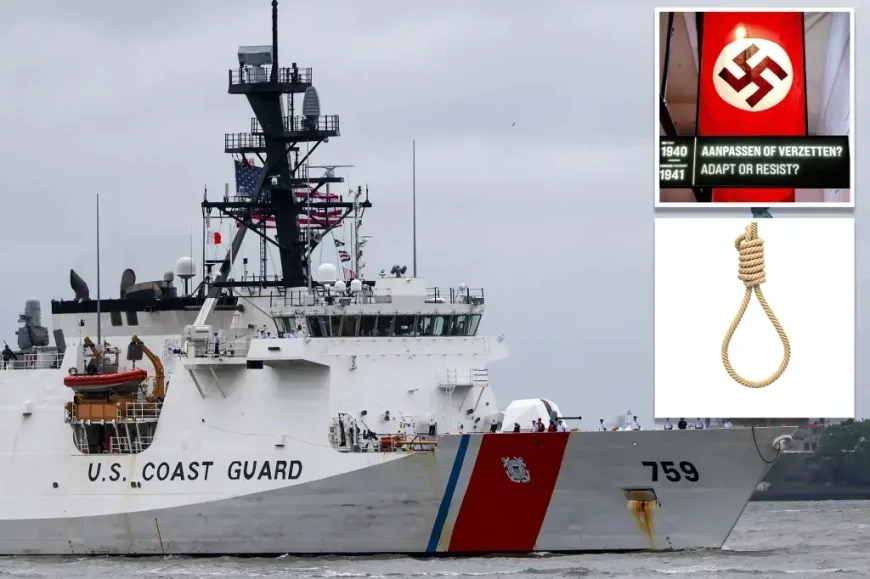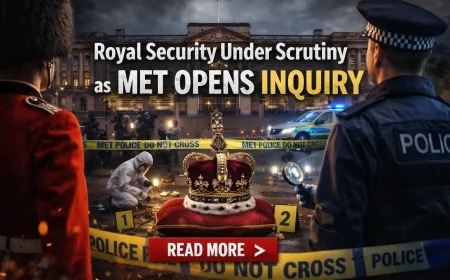The U.S. Coast Guard has issued a new, stricter policy against displaying hate symbols like swastikas and nooses. The policy came just hours after it was revealed it planned to label them as “potentially divisive” – a term that drew outrage from lawmakers and advocates.
The Coast Guard's new policy, released late Thursday night, states, “Divisive or hate symbols and flags are prohibited.” It then adds that this category includes “nooses, swastikas, and any symbols or flags adopted by hate groups.”
An accompanying Coast Guard press release stated, “This is not an updated policy, but rather a new policy to combat any misinformation and emphasize that the U.S. Coast Guard prohibits these symbols.”
This late-night change came on the same day media outlets like The Washington Post learned that the Coast Guard had written a policy earlier this month that called those same symbols “potentially divisive.” This wording is a change from a years-old policy, first implemented in 2019. It stated that symbols like swastikas and nooses are “widely associated with violence or hate,” and their display was considered a “potential hate incident.”
The new policy, implemented Thursday night, also explicitly prohibits the display of any divisive or hate symbols at all Coast Guard locations. The previous version, before banning the symbols, stated that commanders could take steps to remove them from public view, and the rule did not apply to private spaces away from public view, such as family homes.
Both policies maintained a long-standing ban on publicly displaying the Confederate flag outside of certain settings, such as educational or historical sites.
The Coast Guard's new policy appears to be effective immediately. After the initial policy change was made public, Nevada Democratic Senator Jacky Rosen said the change "eliminates essential protections against bigotry and could allow the display of horrific hate symbols like swastikas and nooses without justification."
She added, "At a time when antisemitism is on the rise in the United States and around the world, relaxing a policy designed to combat hate crimes not only sends the wrong message to the men and women of our Coast Guard but also jeopardizes their safety."
Admiral Kevin Lunde, the acting commandant of the Coast Guard, said the policy did not reverse any restrictions, calling such a claim "completely false" in a statement released earlier Thursday.
Lunde said in a statement, “These symbols were and remain prohibited by policy in the Coast Guard,” adding that “any display, use, or promotion of such symbols will, as always, be thoroughly investigated and severely punished.”
Lunde's predecessor, Admiral Linda Fagan, was fired on President Donald Trump's first day in office. Trump officials later stated that she was fired because she placed "too much focus" on diversity and inclusion efforts, which "diverted resources and attention from operationally essential tasks."
The old policy, implemented earlier in November, also clearly stated that "the term 'hate incident' is no longer in the policy" and that behavior previously considered a potential hate incident would now be considered "a report of harassment in cases involving an identified victim."
According to the policy, commanders, in consultation with attorneys, can order or direct the removal of “potentially divisive” symbols or flags if they are found to be affecting unit morale or discipline.
The new policy is silent on whether Coast Guard personnel will be able to claim they were victims of hate incidents.
The old policy, implemented earlier in November, also clearly stated that “the term ‘hate incident’ no longer exists in the policy” and that behavior previously considered a potential hate incident will now be considered “a report of harassment in cases involving an identified victim.”
According to the policy, commanders, in consultation with attorneys, can order or direct the removal of “potentially divisive” symbols or flags if they are found to be affecting unit morale or discipline.
The new policy is silent on whether Coast Guard personnel will be able to claim they were victims of a hate incident.
The Coast Guard is under the Department of Homeland Security, but it is still considered part of the US Armed Forces, and according to a Coast Guard message announcing the changes, the new policy was updated to some extent in accordance with similar Pentagon directives.
It has also historically modeled many of its human resources policies after those of other military services.

 Like
0
Like
0
 Dislike
0
Dislike
0
 Love
0
Love
0
 Funny
0
Funny
0
 Angry
0
Angry
0
 Sad
0
Sad
0
 Wow
0
Wow
0












































